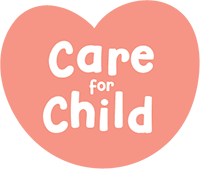What is Postpartum Depression?
Postpartum depression is a mood illness that occurs after a woman gives birth. It can occur in women who have had a normal pregnancy and delivery and can develop at any time during the first year after childbirth. Symptoms may include a lack of interest in the baby, difficulty bonding with the baby, feelings of guilt or worthlessness, changes in appetite or sleep patterns, and thoughts of harming oneself or the baby. Treatments for postpartum depression include therapy, medication, or a combination of both; however, it should be distinguished from the ""baby blues,"" which are common and mild mood changes new mothers experience after giving birth. If you feel that you or a loved one is suffering from PPD, you must seek medical attention.What are the different types of Postpartum Depression?
There are different types of postpartum depression (PPD) that can affect women after childbirth. Some of the common types of PPD include:
1. Major depressive disorder with peripartum onset: This is the most common form of postpartum depression, with symptoms similar to major depressive disorder but usually occurring during pregnancy or in the first four weeks after birth.
2. Postpartum anxiety disorders: This includes generalized anxiety disorder, obsessive-compulsive disorder (OCD), and panic disorder. Symptoms may include excessive worry, racing thoughts, and physical symptoms such as chest pain or shortness of breath.
3. Postpartum bipolar disorder: This is a form of bipolar disorder that can occur after childbirth. It is characterized by manic or hypomanic episodes, followed by depressive episodes.
4. Postpartum psychosis: This is a rare but serious form of PPD that can include delusions, hallucinations, and disorganized behavior. It requires immediate medical attention. It's important to note that PPD is a spectrum, and symptoms can vary widely. For example, some women may experience mild or moderate depression, while others may experience more severe symptoms.
What are the Postpartum Depression Symptoms?
PDS symptoms differ from person to person, but the following are some common markers that a person may experience when suffering from the condition:- Feeling sad, hopeless, or overwhelmed for most of the day, nearly every day
- Loss of interest in previously enjoyed activities
- Changes in appetite
- Sleeping pattern changes, such as insomnia or oversleeping
- Feeling irritable, anxious, or restless
- Difficulty bonding with your baby
- Fatigue or loss of energy
- Feeling guilty or worthless
- Difficulty concentrating, making decisions, or remembering details
- Thoughts of hurting yourself or the baby
What are the causes of Postpartum Depression?
The causes of postpartum depression causes are not fully understood and can be complex, but several factors may contribute to its development, including:
1. Hormonal changes: After childbirth, there is a rapid drop in hormone levels, including estrogen and progesterone, which can contribute to mood changes.
2. History of depression or anxiety: Women with a history of depression or anxiety are at a higher risk of developing postpartum depression.
3. Sleep deprivation: New mothers often experience sleep deprivation, which can contribute to mood changes and make it more challenging to cope with stress.
4. Other health problems: Other health problems, such as thyroid problems or diabetes, may be at a higher risk of developing postpartum depression. It is important to recognise that postpartum depression is not caused by anything a woman did or did not do. However, being well-prepared before the baby arrives with all of the mother's and the baby's essentials may save a lot of stress. As a result, if you ensure, make sure you have all of the baby and mom care basics on hand, such as cloth diapers, langots, incontinence underwear, and nursing pads.
How to Overcome Postpartum Depression?
Overcoming postpartum depression requires a combination of self-care, loved-one support, and professional treatment. Some effective treatments for overcoming postpartum depression include:
1. Talking to a healthcare professional: It's essential to seek help from a healthcare professional, such as a therapist or psychiatrist, who can provide support and guidance. They can also help determine the best course of treatment, including therapy, medication, or a combination of both.
2. Self-care: Self-care is critical for mental and emotional health. This can involve getting adequate sleep, eating a nutritious diet, and exercising.
3. Support from loved ones: It's essential to have a support system in place, whether that includes a partner, family members, or friends. It can be helpful to talk to someone you trust about your feelings and ask for help when needed.
4. Joining a support group: Joining a support group, in-person or online, like SuperBottoms parent tribe, can provide a sense of community and help you connect with other women going through similar experiences.
5. Practicing relaxation techniques: Relaxation techniques, such as deep breathing, meditation, or yoga, can help reduce stress and improve mood.
6. Being patient: Recovery from postpartum depression can take time, so be patient and kind to yourself. It's okay to have good and bad days, and improvement should be slow but consistent. Remember that postpartum depression is a treatable disease, and the majority of women recover completely with the correct therapy and support.

